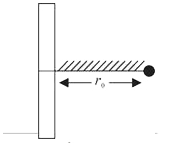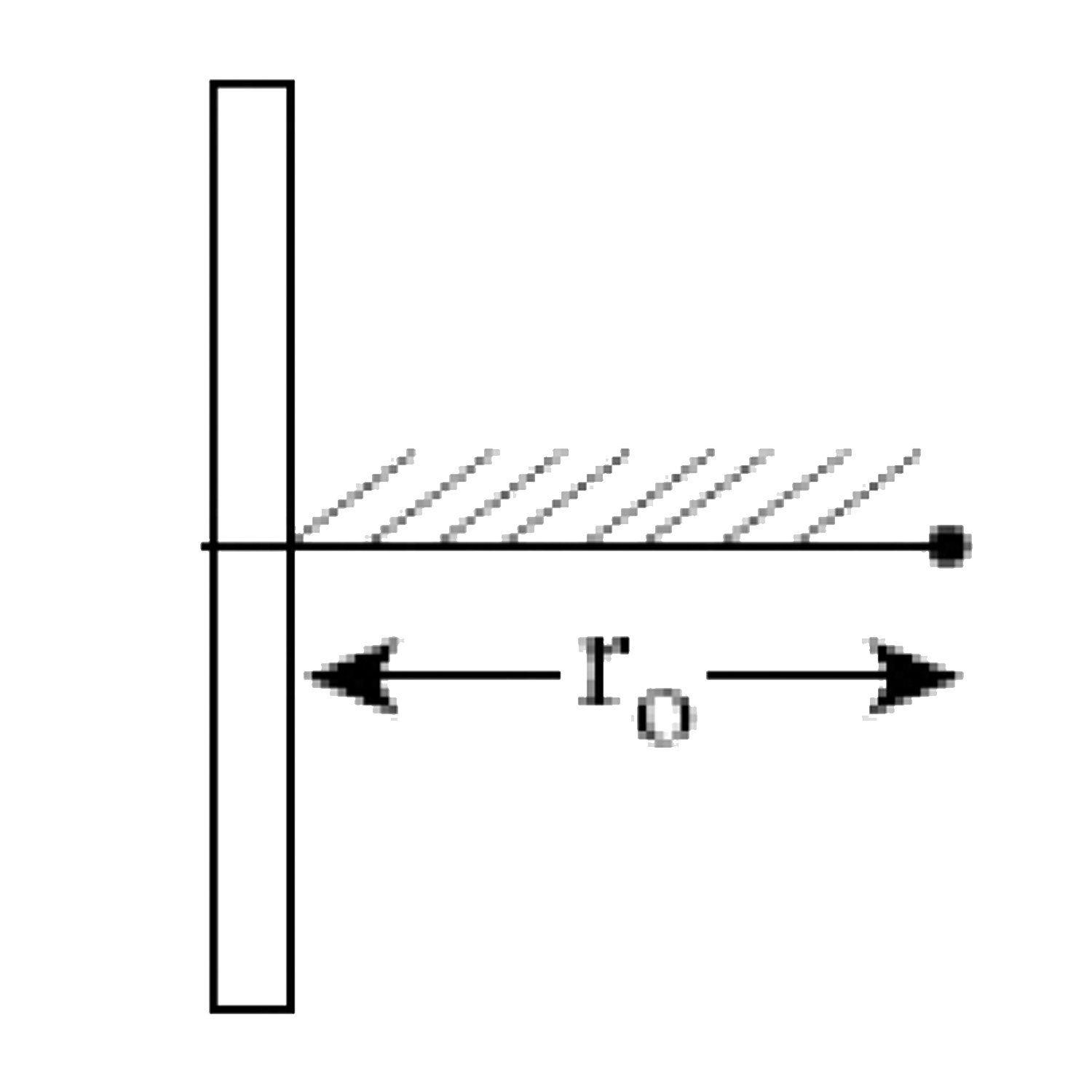A positive point charge is released from rest at a distance r0 from a positive line charge with uniform density. The speed (v) of the point charge, as a function of instantaneous distance r from line charge, is proportional to:

v∝(rro)
v∝ln(rro)
v∝√ln(rro)
v∝e+r/ro
The correct Answer is:C
ΔKE+ΔU=0
(12mv2−0)+q(vf−vi)=0
12mv2+q[−2kλln(rro)]=0
12mv2=2kλqln(rro)
v=[4kλqmln(rro)]1/2
⇒v∝√lnrr0
Similar Questions
A positive charge is released from rest at a distance r0 from a positive line charge with uniform density . The speed (v) of the point charge , as a function of instantaneous distance r from line charge, is proportional to:

View SolutionThe electric field at distance .r. from infinte line of charge (having linear charge densityλ) is
View SolutionThe work done in bringing a unit positive charge from infinite distance to a point at distance x from a positive charge Q is W. Then the potential phi at that point is
View SolutionIntensity of electric field at a point at a perpendicular distance .r. from an infinite line charge, having linear charge density .λ. is given by :
View SolutionA positive charge released from rest
View SolutionA positive point charge is connected to a positive line charge of uniform charge density. r_(0) is released from rest at a distance of . The speed (v) of the point charge as a function of the instantaneous distance r from the line charge is proportional to
View SolutionUniform Linear Charge Density lamda A point charge q is located at a distance r from a very long, charged string. Find the total electric force experienced by the linear charge due to this point charge. (neglect gravity)
View Solutionr is the distance between two point charges of mass m and charge q, they are released from this position. What will be the velocity of each charge when the distance between the two point charges is 2r?
View Solution
